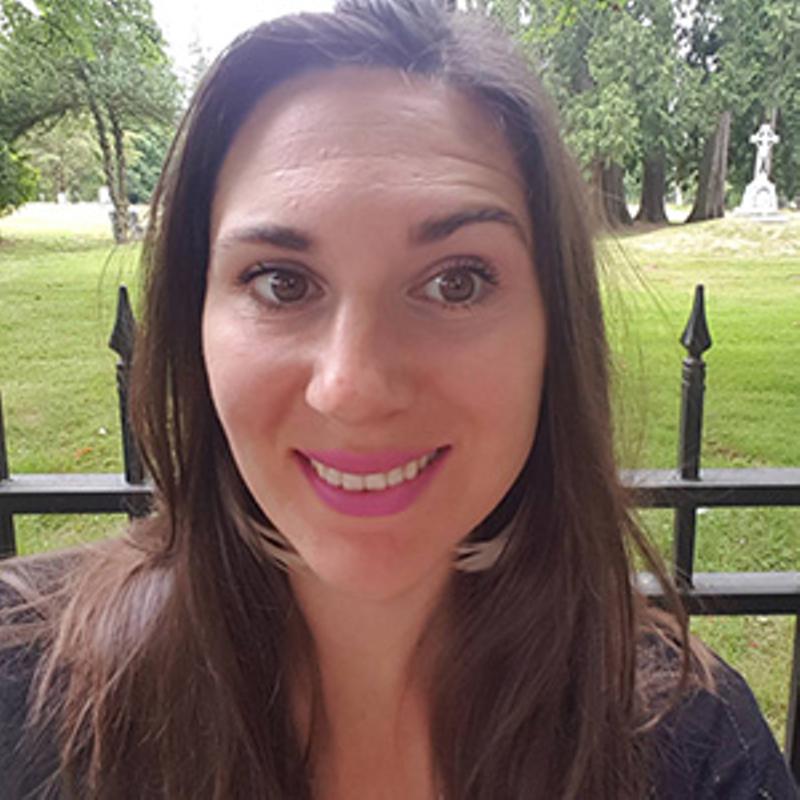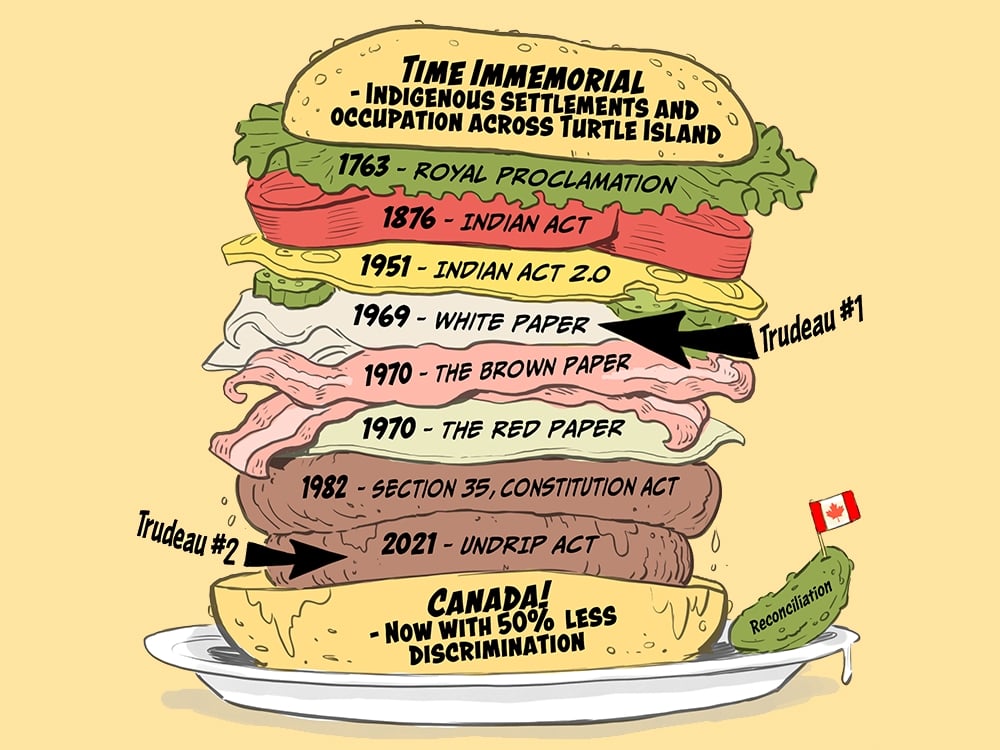A new course offered through RAVEN, Respecting Aboriginal Values and Environmental Needs, a Vancouver-based charitable non-profit, aims to help non-Indigenous people learn about some of the harder-to-digest aspects of the country’s history, using humour to soften the blow. RAVEN is an organization that raises funds to help Indigenous communities with legal defence, mainly in environmental cases.
The course, called Home on Native Land, is a self-directed course on Indigenous law, colonial history and environmental injustice, divided into 10 modules. Users can surf through videos and cartoons featuring prominent Indigenous thinkers, scholars and legal experts, all while getting a good laugh.
The host of each of the 10 videos is Anishinaabe comedian Ryan McMahon.
“When something is told in a funny way, you’re kind of able to open up and adjust and process things, when you would normally have a negative reaction to it,” said Leena Minifie, co-developer, producer,and lead consultant on the series and project Stories First.
“That’s in science, but it’s in Indigenous traditions, as well. We always use humour to tell stories, and give anecdotes on how to lovingly correct people… We always tease or make fun and bring light and levity to the situation,” she said.
Home on Native Land starts off with a module titled “Whose Land is it Anyway?,” then moves through nine other lessons with clever titles like “Trick or Treaty,” “The Indian Act or Act Indian,” “Your Indigenous Legal History Sandwich,” and "The Big S Words — Sovereignty, self-determination and self-government.”
The course explores a range of subjects, including the meaning of the Treaties; traditional land claims; hunting and fishing rights; the relationship between the United Nations Declaration on the Rights of Indigenous Peoples and historical, ongoing genocide and assimilation attempts; environmental law; and the intersection of multiple law systems, particularly Indigenous law and how it can fall between the cracks of provincial and federal law.
Though the subject matter is serious, McMahon makes his first joke just a few minutes into the first module, discussing Manifest Destiny, the idea that colonizers were “vested by God to expand territory.”
“Do you think God would buy me a mansion in Vancouver?” McMahon asks, turning to a member of the film crew standing near him.
Receiving a disapproving look from the crew member, he continues. “Oh, no? Stick to the script… that’s fine.”
His first guest on the show is Jeff Corntassel, an academic and comedian. Corntassel is a professor in Indigenous studies at the University of Victoria.
“Terra nullius sounds like a bad name for an emo band,” McMahon says to Corntassel.
“Or like a virus… I came down with terra nullius,” jokes Corntassel.
For readers whose curiosity has now been piqued, terra nullius was the colonial idea that the land was “empty,” because it wasn’t being used for practices like farming.
“It comes down to this whole notion that you’ve got to mix your labour with the soil in order for it to be your land. And really what it connoted back in the day… back in the 1490s, and all the way up to present, is this notion that these are non-Christian people on this land,” says Corntassel in the video.
Terra Nullius is one of the concepts, along with the Doctrine of Discovery and Manifest Destiny, that colonizers used to justify occupying and taking over Indigenous lands.
Powerhouse teachers
There’s a range of knowledgeable speakers featured in the learning modules. Among others, they include Karen Pugliese, a Toronto Metropolitan University journalism professor; Glen Coulthard, a UBC Indigenous studies professor; Dr. James Makosis, an Indigenous physician and University of Alberta clinical professor (and reality TV star from The Amazing Race Canada); Kukpi7 (Chief) Judy Wilson of the Neskonlith Indian Band; and University of Victoria Indigenous law professor John Borrows.
“Every single one of them is sort of a powerhouse,” said Minifie of the 10 speakers who participated in the course.
RAVEN executive director Susan Smitten said the idea for the course emerged from commonly asked questions about RAVEN and the work they do — questions for which the answers are complicated, and require considerable time and education to answer well.
At one point during their research, RAVEN hosted a livestream event fielding questions from people who called in.
“People were literally phoning in with questions like, “What do I say to my uncle if he shows up at Thanksgiving and he’s a racist?” said Smitten.
“John Borrows sat there and he was like, ‘Well I’d use that as an opportunity to get curious. How come he has that opinion? Where did he get that opinion?’ So we took all of what we learned and some of the questions and the thought-provoking responses,” she said.
A special collaboration
Using the questions and feedback, RAVEN’s team spent three years creating the course.
That team includes a graphic designer, Warren Leonhardt, who has worked for Disney, said Smitten. Leonhardt contributed all his work free of charge, because of how important he felt the cause was.
The course also features a special collaboration between artists, which holds some sentimental value now. Heiltsuk artist Mervin Windsor and Dene artist John Belton worked together to design the logo for the course, which consists of an image with the shape of Canada but with artistically rendered animals fitting into each province and territory. The map was adapted from Windsor’s previous work.
“John and Mervin worked together and digitally restored his map, and then Mervin and his family gave us permission to use it. And then really sadly, last year Mervin died unexpectedly. So, we feel like this is an opportunity to honour him and his artwork,” said Smitten.
Anyone who would like to brush up on their knowledge of Canada’s history of colonization and relations with First Nations, Inuit and Métis people — including anyone who has a family dinner with a racist uncle coming up soon — can access the course on RAVEN's website. ![]()
Read more: Indigenous, Rights + Justice, Education

















Tyee Commenting Guidelines
Comments that violate guidelines risk being deleted, and violations may result in a temporary or permanent user ban. Maintain the spirit of good conversation to stay in the discussion.
*Please note The Tyee is not a forum for spreading misinformation about COVID-19, denying its existence or minimizing its risk to public health.
Do:
Do not: